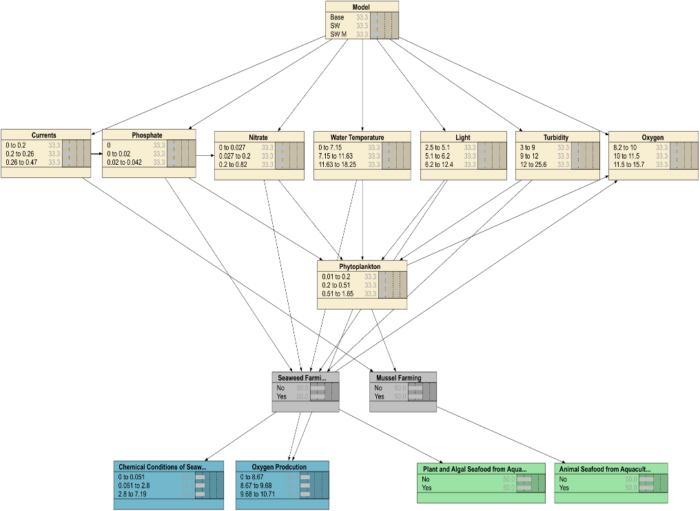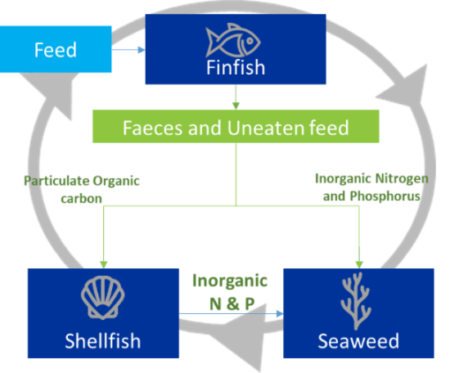Article produced by Leitat.
In IMPAQT project, Leitat is implementing a sustainable assessment methodology where environmental, social, and economic aspects are included and interrelated. Under the environmental perspective, ecosystem services (ES) and circular economy perspective are assessed providing a holistic approach.
Within the ESA task, the analysis combines qualitative and quantitative features of ES assessment though the implementation of a Bayesian Network. To do so, Deltares has first developed a conceptual model to analyse existing monoculture systems and their connections to all delivered marine ES in accordance with CICES classification.
Secondly, the systems are assessed once new species are introduced under IMTA conditions. This study is being implementing in two of the IMTA pilots (CAMLI and NSF sites) and will be complemented with the Pearson’s Correlation Coefficient analysis developed by UNPARALELL, where correlations are matched with the ecosystem services. Thanks to ESA, IMPAQT project will provide information on the benefits of IMTA to ecosystems in terms of regulating and maintenance services (fig 1).
Figure 1. Developed Bayesian Network Depicting Provisioning (green) and Regulating and Maintenance Ecosystem Services (blue)
In addition to ESA study, IMPAQT project is also addressing the circularity within the IMTA pilots as part of the sustainability assessment. In IMTA farms the uneaten feed and wastes, nutrients, and by-product are recaptured and converted into harvestable and healthy seafood (Fig. 2).
In this context, Leitat is looking at the biomitigation potential of the IMTA pilots determining how farms operate within the circular approach. Moreover, the platform developed in the project represents a management system that permits to minimize the negative externalities by increasing the efficiency of the natural resources use.
In line with that, Leitat team is identifying how the IMPAQT platform incorporates the circularity principles. It has therefore been observed that the solutions provided by IMPAQT are totally aligned with the circular economy concept.








